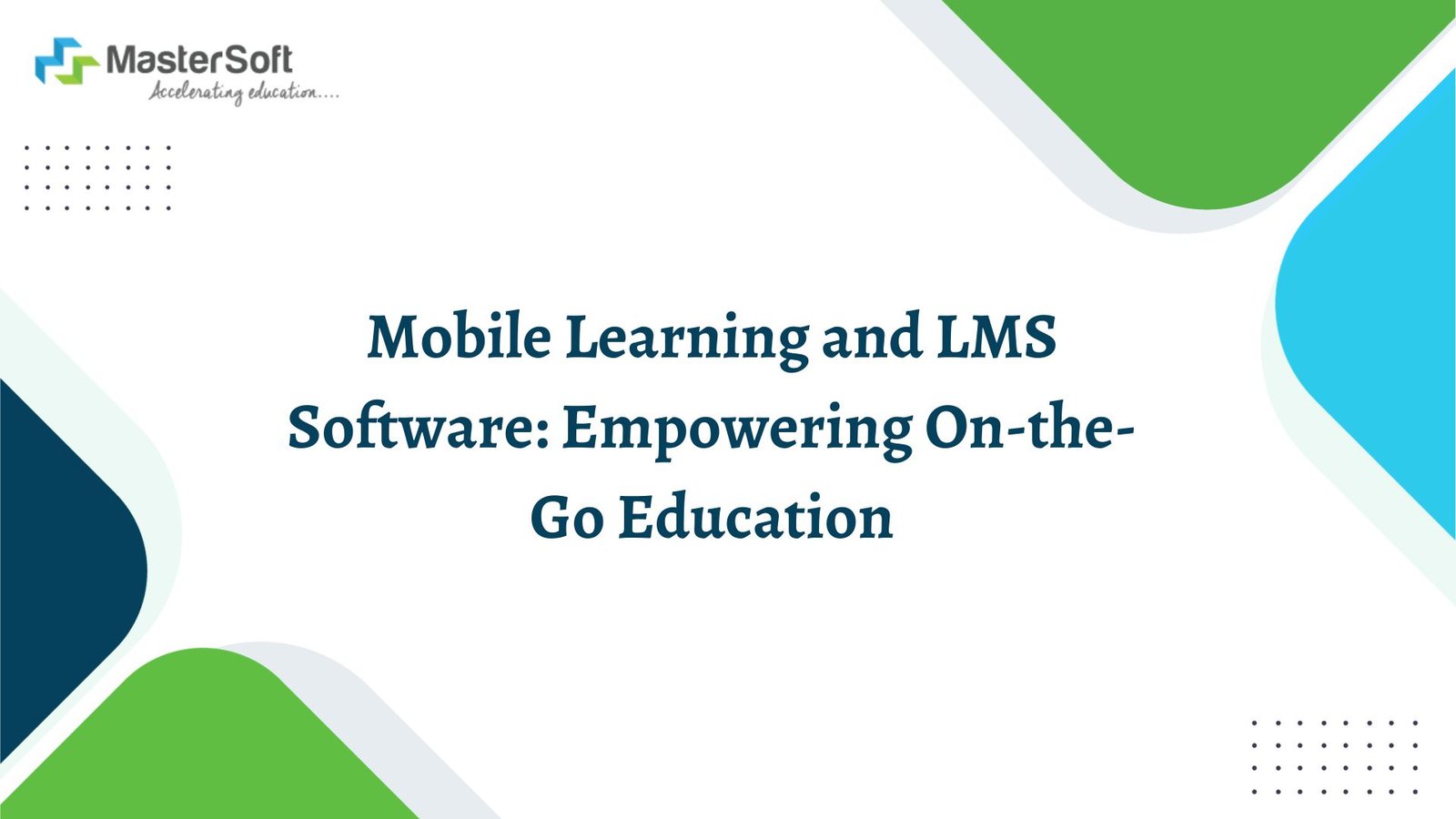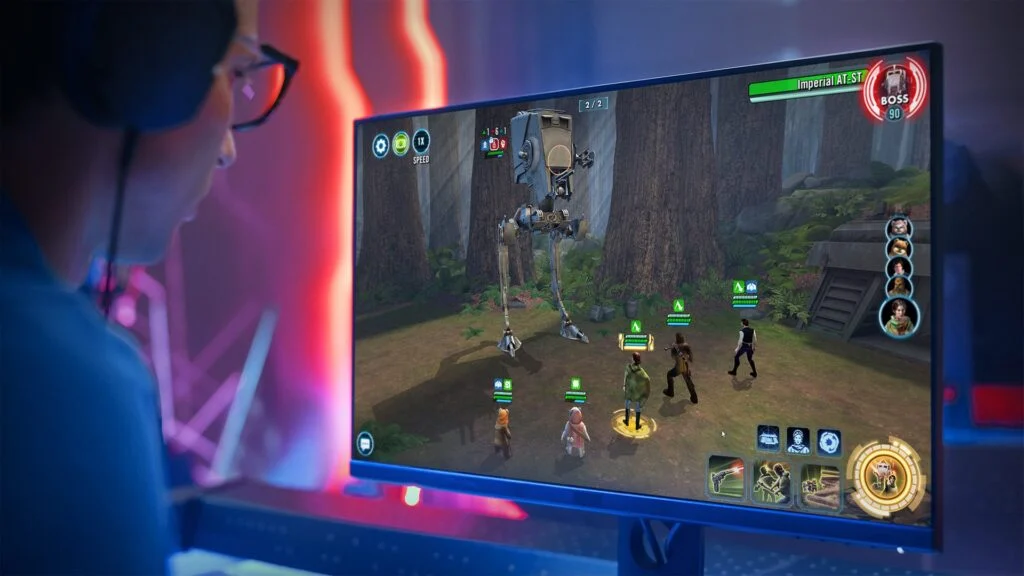In the fast-paced, digital age we live in today, education has evolved beyond the confines of traditional classrooms and textbooks. Mobile learning, also known as m-learning, has emerged as a transformative force in the education sector. Alongside this, Learning Management System (LMS) software has played a crucial role in enabling and enhancing the mobile learning experience. This blog explores the intersection of mobile learning and Learning Management Systems, and how they collectively empower on-the-go education.
The Mobile Learning Revolution
Mobile learning is a paradigm shift in education. It leverages the ubiquity of smartphones and tablets to deliver educational content to learners at any time and from any place. Whether you are a student looking to enhance your academic skills, a professional seeking to upskill, or a hobbyist eager to learn something new, mobile learning provides an accessible and flexible approach to education.
- Accessibility: One of the most significant advantages of mobile learning is accessibility. Learners no longer need to be physically present in a classroom or tied to a desktop computer. With a smartphone or tablet and an internet connection, education is just a few taps away. This accessibility ensures that people from all walks of life can access learning materials and opportunities, democratizing education.
- Flexibility: Mobile learning is tailored to suit individual schedules. Learners can choose when and where they want to study. This flexibility is a game-changer for those who juggle work, family, and other commitments, as it allows them to integrate learning seamlessly into their daily lives.
- Engagement: The interactive nature of mobile learning engages learners in a dynamic way. With multimedia elements, gamified quizzes, and interactive assessments, learning becomes more fun and memorable. This increased engagement contributes to better retention of information.
The Role of LMS Software
. Here’s how LMS software complements mobile learning:
- Content Management: LMS software offers a centralized platform for creating, organizing, and distributing educational content. Educators can effortlessly upload and update course materials, making them instantly accessible to learners on their mobile devices. This centralized approach ensures content consistency and easy updates.
- Personalization: best LMS software in India software allows for the personalization of learning experiences. It can track individual learner progress, recommend additional materials based on performance, and adapt to the specific needs of each learner. Personalization enhances the effectiveness of mobile learning by tailoring it to the unique learning style of each user.
- Communication and Collaboration: Effective communication is vital in the learning process. LMS software provides communication tools such as discussion boards, chat, and email, fostering interaction among learners and educators. Collaboration on assignments and projects becomes seamless, even in a mobile learning environment.
- Assessment and Analytics: LMS software simplifies the assessment process. It can automate quizzes and tests, providing instant feedback to learners. Furthermore, it generates analytics that help educators evaluate the effectiveness of their content and pedagogical strategies. These insights enable continuous improvement in the quality of mobile learning materials.
- Security and Compliance: In the digital realm, security is a top priority. LMS software ensures the safety of educational data and user information. It also helps institutions comply with data protection regulations, providing peace of mind for learners and educators alike.
Case Study: Mobile Learning and LMS in the Real World
Let’s consider an example to illustrate the power of mobile learning and LMS software. Imagine a multinational corporation that wants to train its employees on new compliance regulations. With offices and staff spread across the globe, traditional in-person training is impractical.
This is where mobile learning and LMS come into play. The company invests in an LMS platform that allows them to create compliance courses, which employees can access through their smartphones and tablets. Here’s how it unfolds:
- Accessibility: Employees can access the training materials on their mobile devices from anywhere, whether they are at the office, working from home, or even traveling for business.
- Flexibility: The employees can complete the courses at their own pace, fitting it into their busy schedules. They can even pause and resume as needed.
- Content Management: The LMS software centralizes all course materials and updates, ensuring that every employee has access to the most current information.
- Assessment and Analytics: The LMS tracks each employee’s progress and performance, providing feedback and allowing HR to monitor compliance with the regulations.
- Communication and Collaboration: If employees have questions or need clarification, they can use the built-in chat and discussion features to interact with trainers or colleagues.
In this case, mobile learning and LMS software not only empower the company to efficiently train its employees but also ensure that they remain compliant with the latest regulations. This example showcases how the synergy between mobile learning and LMS software can drive learning outcomes and improve corporate training.
Conclusion
Mobile learning, coupled with Learning Management System software, has revolutionized education. It has broken down barriers of access, time, and place, making learning more inclusive and personalized. With the right LMS platform, educators, institutions, and organizations can harness the full potential of mobile learning to empower learners of all ages and backgrounds. This evolution in education is a testament to the transformative power of technology in the modern world. Embracing mobile learning and LMS software means embracing a brighter, more accessible, and flexible future for education.




